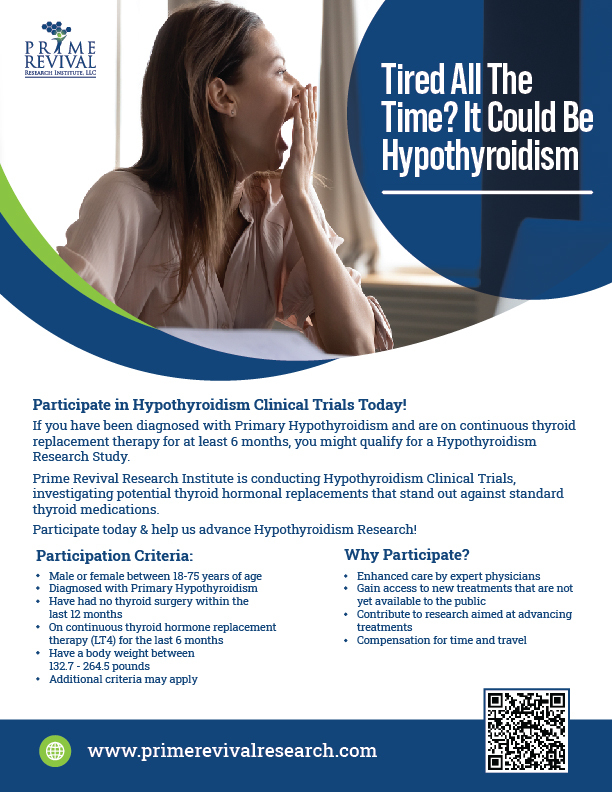Explore the potential of novel therapeutic approaches for Primary Hypothyroidism through clinical trials.
Hypothyroidism is one of the most common thyroid diseases affecting people all over the world regardless of age, sex, and race. With Hypothyroidism, low thyroid hormone levels cause the body’s functions to slow down, leading to general symptoms like cold intolerance, fatigue, loss of energy, and memory problems.
The common endocrine condition is treated by replacing the missing thyroid hormone with synthetic thyroxine pills (LT4), which usually have to be taken every day for life.
Prime Revival Research Institute is conducting Hypothyroidism Clinical Trials to evaluate the safety and efficacy of an investigative natural therapy in people diagnosed with Primary Hypothyroidism.
You may be able to participate if you:
- Are between 18 – 75 years of age
- Have been diagnosed with Primary Hypothyroidism
- Have had no thyroid surgery within the last 12 months
- Are on continuous thyroid hormone replacement therapy (LT4) for the last 6 months
- Have a body weight between 132.7 – 264.5 pounds
Your doctor will review additional study criteria with you and see if you qualify. If you do qualify and decide to participate in the Hypothyroidism Clinical trials, you will receive all study-related care.


